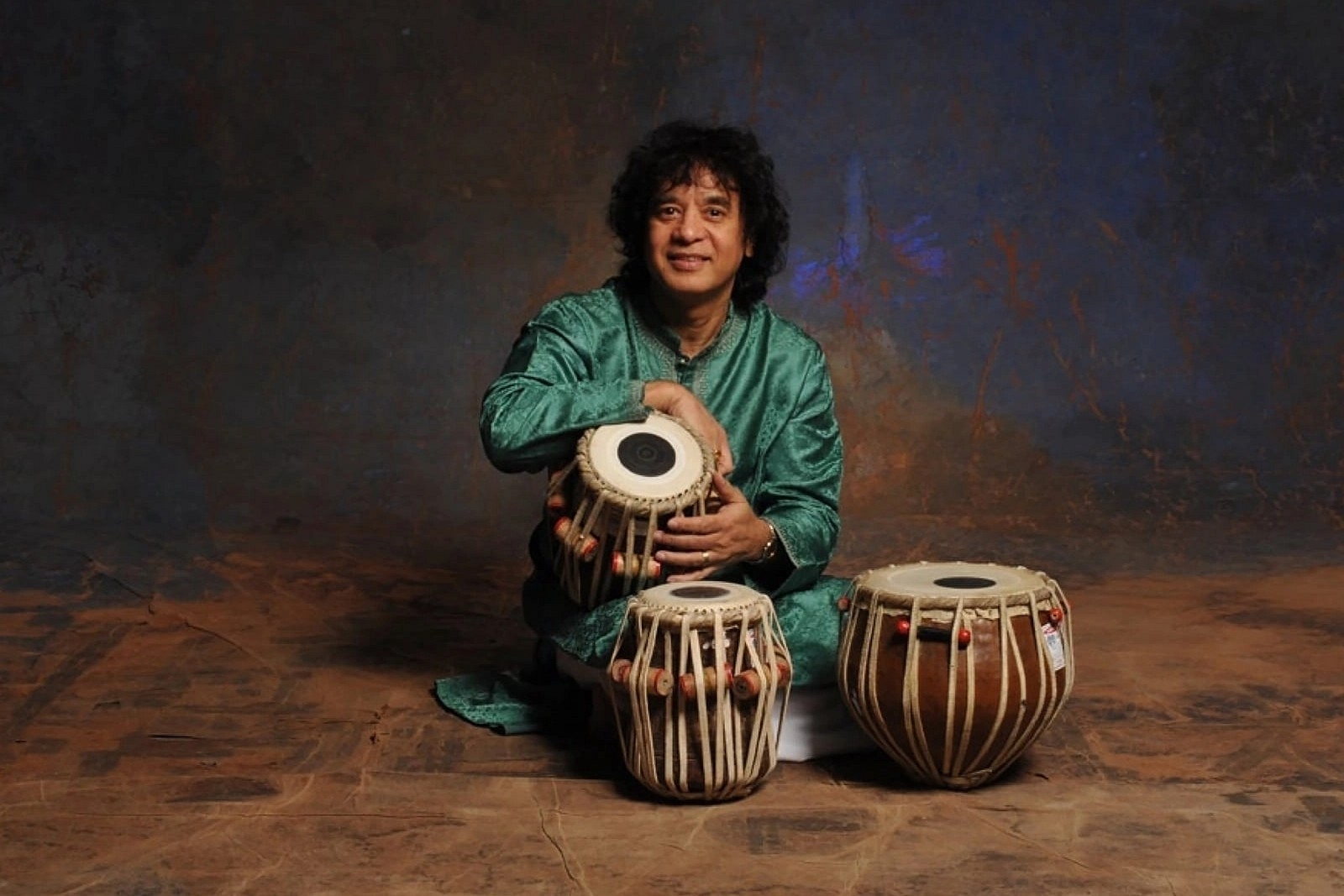Culture
Ustad Zakir Hussain: The Ever-Smiling Global Icon Of Indian Music
- In awarding a Padma Vibhushan to Ustad Zakir Hussain, a culture where Creation itself is a cycle, honours its most famous practitioner of rhythm.

Ustad Zakir Hussain (Credit: Zakir Hussain Facebook page)
When Ustad Zakir Hussain was born, his father, the legendary Ustad Alla Rakha, ‘Abbaji’, was supposed to whisper the kalma in the infant’s ears.
The story goes that Alla Rakha took the baby in his arms, and gently whispered, ‘dha, dhin, dhin, dha’. These were the bols to the tritaal, the foundation of all Indian percussion.
When asked why, Alla Rakha is believed to have replied that it was as sacred to him as his prayer.
This was the passion for music, along with utter mastery of the craft, that Zakir Hussain was expected to inherit and build upon.
And did he?
As of today, he is arguably the most recognisable icon of Indian classical music in the world, along with being a synonym for the tabla.
In that, he has diligently built upon the legacy of his father and Pt Ravi Shankar, with the latter being the first artist from the Indian classical tradition to truly ‘cross over’ into Western pop culture.
In fact, it can even be argued that while the twang of the sitar still remains associated with psychedelics, Woodstock, and ‘flower power’ in a good section of Western popular consciousness, the tabla enjoys an identity of its own. And the face of this identity, is Ustad Zakir Hussain.
Back home too, the Ustad enjoys popularity not generally seen associated with musicians of the classical discipline.
For instance, in the late 80s and 90s, when film-stars and sports-persons were the only people brands reached out to for endorsement deals, Zakir Hussain with his flowing locks became the face of Taj Mahal tea. You may or may not drink Taj Mahal tea, you may not even be a tea-drinker, but you heard “Wah Taj!” and the first thing that came to your mind was Ustad Zakir Hussain.
In another dimension of this fame, the Ustad remains among the most popular and sought-after musicians on the Indian concert circuit.
In all of this, the tabla virtuoso has remained true to his roots, as to his craft. Fellow practitioners of the art of tabla fondly recount his humility, as they swear by the mastery of his craft.
Even vocalists and other instrumentalists—across generations—have spoken warmly of their experience of performing with Ustad Zakir Hussain. This is yet another trait the Ustad has inherited from his father—where the tabla is not relegated to a ‘lower rank’ on the stage, and nor does it overpower the other instrument/vocals. Rather, it creates the way, a road for the melody of the accompanying artist to travel on.
And it is a road that he has created, a path that he has carved for Indian musicians of today and the future, to travel on and take India’s music to new frontiers.
In awarding a Padma Vibhushan to Ustad Zakir Hussain, a culture where Creation itself is a cycle, honours its most famous practitioner of rhythm.
Introducing ElectionsHQ + 50 Ground Reports Project
The 2024 elections might seem easy to guess, but there are some important questions that shouldn't be missed.
Do freebies still sway voters? Do people prioritise infrastructure when voting? How will Punjab vote?
The answers to these questions provide great insights into where we, as a country, are headed in the years to come.
Swarajya is starting a project with an aim to do 50 solid ground stories and a smart commentary service on WhatsApp, a one-of-a-kind. We'd love your support during this election season.
Click below to contribute.
Latest